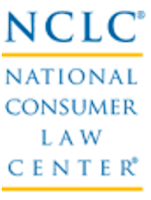On behalf of the Moot Court Honor Board at the University of Washington School of Law, I am pleased to invite you to participate as a judge in our 2017 1L HCMP Appellate Advocacy Competition. The competition will take place Monday, May 8 through Monday, May 15. More information about the competition and a complete schedule may be found at the bottom of this email.
We welcome attorneys from all practice areas to participate. Volunteer judges are invaluable to the continued success of MCHB and the in-house competition program. As a judge, you will provide valuable feedback and evaluate the participants’ performance. For your service as a judge you will receive:
- 3 free CLE credits and 2.5 credits for each additional night judged*
- Free parking
- Dinner
If you are unable to serve as a judge for this competition, but would like to receive invitations to judge future competitions, please let us know via the sign-up sheet. Questions can be sent to
judges@uw.edu.
Thank you in advance for your support. We hope to see you at the competition.
Sincerely,
CaroLea Casas
Vice President of Judges
UW Moot Court Honor Board
*Each round of competition entails a time commitment of substantive work (training, listening to competition rounds, grading, and delivering feedback) of approximately 3 to 3.5 hours. Judges will receive 0.5 credits for training activity per competition and 2.5 CLE credits for each round judged. Note that WSBA no longer places a limit on CLE credits from judging MCHB competitions.
2017 1L HCMP Appellate Advocacy
Competition Schedule
Monday, May 8: Preliminary Round #1
5:30-6:00 p.m. Judge check-in and dinner; chance to review problem.
6:00-6:30 p.m. Mandatory training for judges.
6:30-9:00 p.m. Competition round and feedback.
Tuesday, May 9: Preliminary Round #2
5:30-6:00 p.m. Judge check-in and dinner; chance to review problem.
6:00-6:30 p.m. Mandatory training for judges.
6:30-9:00 p.m. Competition round and feedback.
Wednesday, May 10: Quarterfinal Round
5:30-6:00 p.m. Judge check-in and dinner; chance to review problem.
6:00-6:30 p.m. Mandatory training for judges.
6:30-9:00 p.m. Competition round and feedback.
Thursday, May 11: Semifinal Round
5:30-6:00 p.m. Judge check-in and dinner; chance to review problem.
6:00-6:30 p.m. Mandatory training for judges.
6:30-9:00 p.m. Competition round and feedback.








